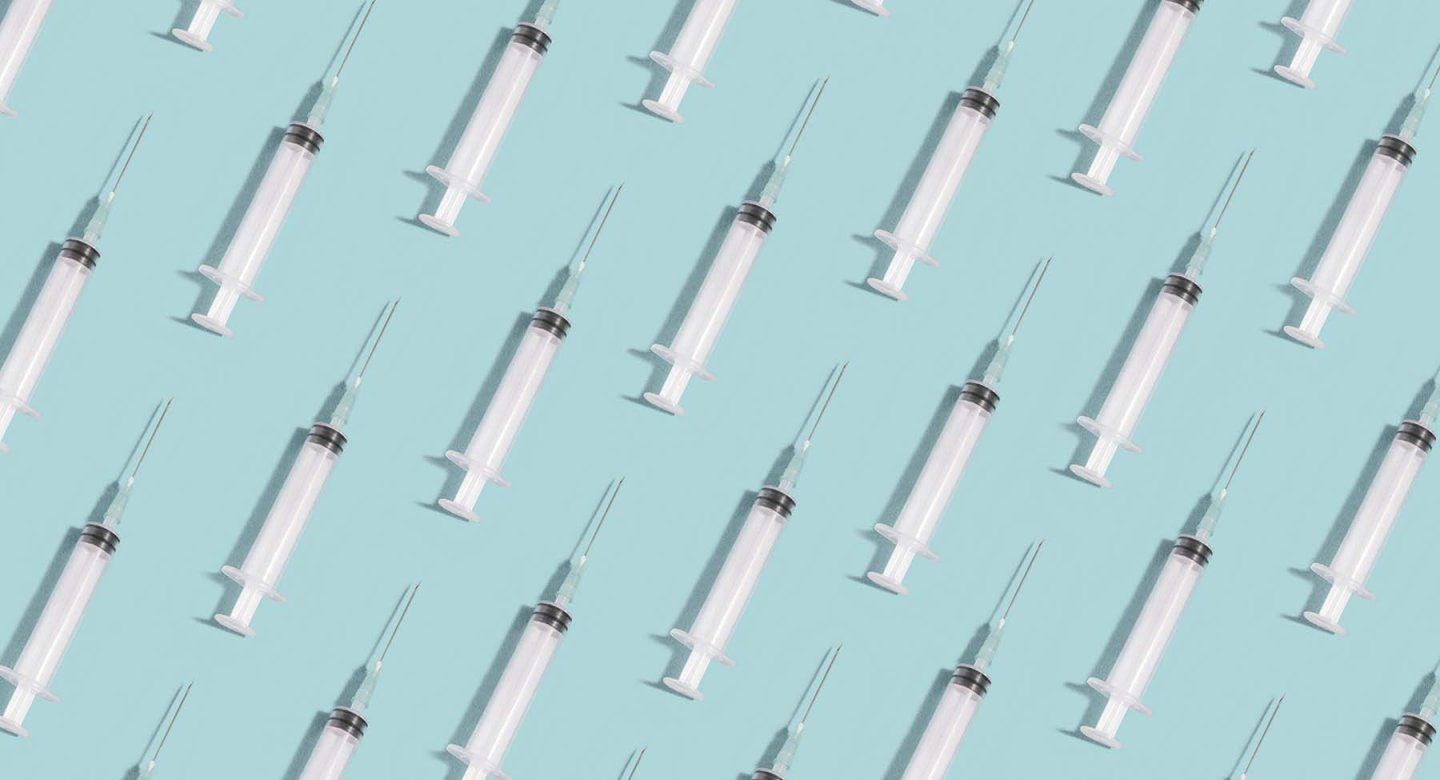Can We Stamp Out HIV? New Monthly Injections Could Offer Hope
UCSF faculty test promising new approach to managing HIV at San Francisco General’s Acclaimed Ward 86.
After 35 years of taking multiple medications every day to control his HIV, Paul Aguilar started to slip up. And so did the amount of virus in his system.
“At first, I thought it was just a blip, because it would go up and then go undetectable. But then it started to really climb,” said Aguilar, 60, an AIDS activist in San Francisco who has been living with HIV since 1988.
Aguilar, who struggles with an attention-deficit disorder, found himself becoming increasingly noncompliant with his daily drug regimen. “No matter what I did to try to trick myself into remembering to take them, there was this block.”
Remembering to take medications each day is a challenge for many. Despite the wide availability of oral HIV medications, about one in three people with HIV struggle to get it under control. Some face multiple challenges, such as homelessness, substance use, mental health and cognitive issues, as well as medication fatigue.
Luckily, Aguilar was a patient at the Ward 86 HIV/AIDS Clinic at Zuckerberg San Francisco General Hospital and Trauma Center, which has been at the forefront of care since the start of the AIDS epidemic.
His physician, Monica Gandhi, MD, MPH, a professor in the Department of Medicine at UC San Francisco, encouraged him to join in a pilot project testing a new approach to controlling HIV for people like him. Instead of taking daily pills, patients received monthly or bimonthly injections.
A bold experiment pays off
The new approach, dubbed SPLASH, for Special Program on Long-Acting Antiretrovirals to Stop HIV, provided monthly or bimonthly injections of long-acting anti-retroviral therapies that limited the amount of HIV in patients’ bodies. This is what’s known as “viral suppression,” and it both protects people from the ravages of AIDS and prevents them from spreading HIV to others.
SPLASH used a combination of two medications, long-acting cabotegravir and rilpivirine – which the U.S. Food and Drug Administration has approved, but only for those who already had their infections controlled with pills.
“We have a lot of patients who are very adherence-challenged,” said Gandhi, medical director of Ward 86, the oldest HIV clinic in the country. “Ward 86 went outside of the box to use the long-acting medications in people who weren’t suppressed and had a hard time taking their medications, but that’s the population that needs them most. We did it, and our experiment paid off.”
The SPLASH pilot was the latest innovation from the 150-year-and-counting partnership between UCSF and Zuckerberg San Francisco General and the newest treatment regimen from Ward 86 – a pioneering HIV/AIDS clinic. Such cutting-edge work was made possible through the seamless sharing of research by the faculty and physicians of the public university and safety net hospital.
The pilot project’s early promising results, released in February by the National Institutes of Health, were confirmed in a study published in the July issue of the Annals of Internal Medicine. More than 97% of the study’s participants – a highly diverse group that had trouble taking daily pills for many different reasons – achieved viral suppression by a median of 26 weeks on monthly or bimonthly injections.
Between June 2021 and November 2022, the researchers followed 133 HIV patients from Ward 86 on long-acting injectables. Of the group, 42% were either homeless or unstably housed, while 34% had substance use disorders.
All of those who began the study with their HIV under control remained suppressed through the follow-up period. And 55 out of 57 who started the pilot without being virally suppressed had achieved that goal after about a month in the study. Only two of the 133 participants could not achieve or maintain suppression, which is about the same failure level seen in the clinical trials that got the injectables approved.
A “godsend” for patients struggling with daily regimen
The results are the first to show that patients who are not virally suppressed can control the amount of virus in their bodies with the long-acting therapy. “Something that you can’t convey in a paper is how happy it made some people for the first time to be on medications that suppressed their virus,” Gandhi said.
Within two months of starting the monthly injectables, Aguilar’s HIV was suppressed. This year, he was named the Lifetime Achievement Grand Marshal for San Francisco Pride Parade and invited Gandhi to join him.
“This has been a godsend,” he said. “I don’t have to worry about it anymore – like, ‘Oh my god, did I take my pill?’”

Another SPLASH participant, who asked to remain unnamed, had been diligent about taking her HIV medications for more than two decades, until the first year of the pandemic, when she became ill with COVID-19.
The COVID infection caused cognitive impairment, which made it hard for her to remember to take her oral HIV medications — on top of more than a dozen immunosuppressant drugs she takes each day to manage a heart transplant.
“It’s made my daily regimen much easier,” said the woman, now 66, who also suffers from depression.
Gandhi said she hopes other HIV clinics around the country will follow Ward 86’s lead and replicate the results. Building on the results could convince the expert panel that determines national treatment guidelines to expand the use of injectables to those who do not have their HIV under control, she said.
“We want this done at other centers,” she said, “so we can show that it works everywhere.”
